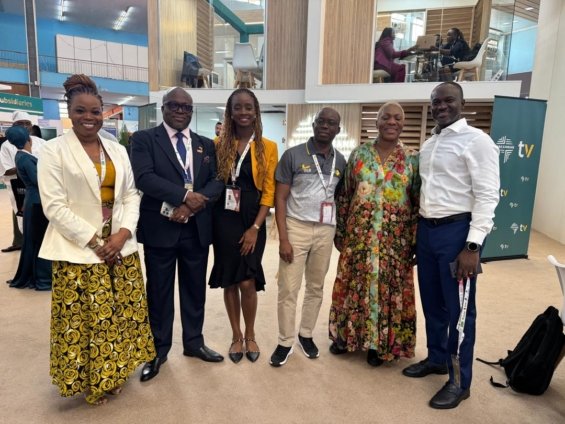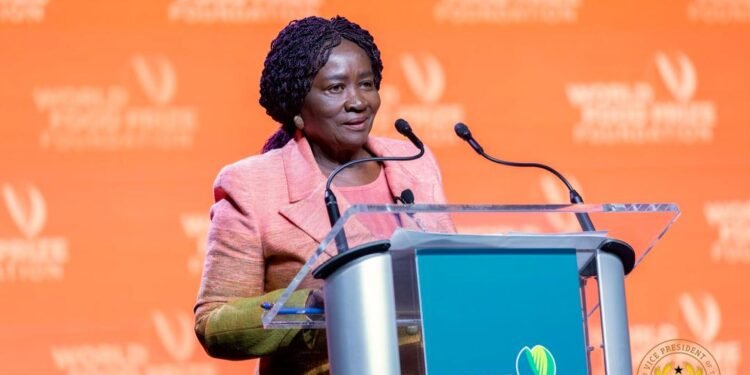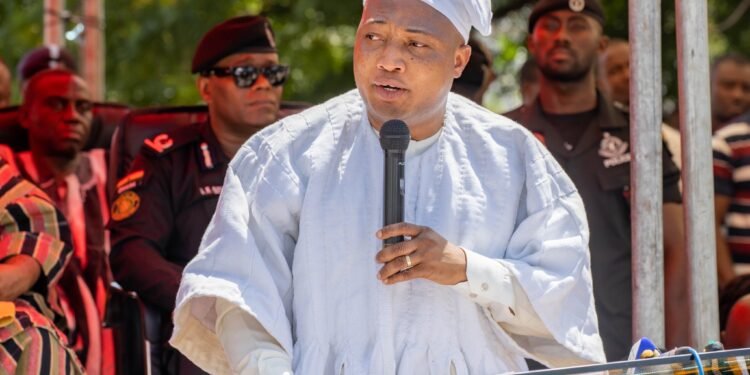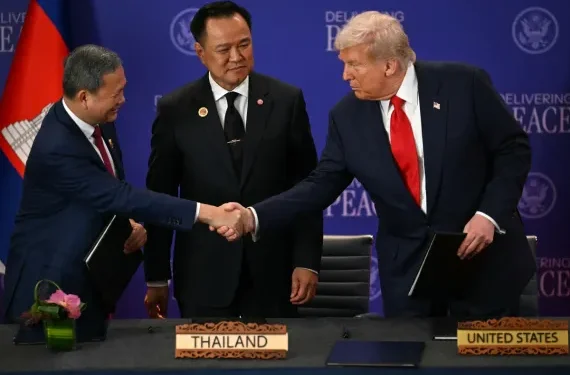The African Continental Free Trade Area (AfCFTA) continues to reshape the narrative of trade across Africa, creating new opportunities for businesses and financial institutions alike.
At the 2025 Intra-African Trade Fair (IATF) in Algiers, where 20 Heads of State, 132 countries, and thousands of businesses converged, trade and investment deals worth an astounding $48.3 billion were announced.
Yet, amid this scale, Afreximbank President, Prof. Benedict Oramah, lamented the “limited presence of African commercial banks and Development Finance Institutions (DFIs),” calling for greater participation in financing intra-African trade. Answering that call with bold strides is Ghana’s largest indigenous lender, GCB Bank PLC.
As Ghana strengthens its role in intra-African trade, GCB Bank is positioning itself as a key enabler for exporters and businesses seeking to expand under AfCFTA. The bank’s active engagement at the IATF 2025 underscored its vision to serve as a trade powerhouse, driving Ghana’s competitiveness on the continent.
Aurelia Baaba Ofori Odame, Head of GCB’s SOE and Afro-Asia Unit, meanwhile, highlighted the strategies that the bank will adopt.
“Our focus is on giving exporters access to finance, trade guarantees, factoring, value chain financing, and advisory support. We are building structures that will help Ghanaian businesses not just participate, but thrive in AfCFTA markets.”
Aurelia Baaba Ofori Odame
Pioneering Financial Innovation with PAPSS
One of GCB Bank’s most groundbreaking achievements is its leadership in cross-border payment facilitation. The bank was the first in Africa to complete a transaction on the Pan-African Payment and Settlement System (PAPSS), a game-changing platform designed to simplify trade payments across the continent.
By integrating PAPSS into its mobile banking platform, GCB has made it easier for exporters and SMEs to process transactions seamlessly across borders. This innovation not only cuts transaction costs but also reduces delays that have traditionally hindered trade. It cements GCB’s reputation as a pioneer in modern financial services aligned with Africa’s integration agenda.
In collaboration with Afreximbank, the Ghana Export Promotion Authority (GEPA), and the Nigeria Export-Import Bank (NEXIM), GCB Bank is developing a dedicated AfCFTA Export Desk. This initiative will serve as a one-stop solution for exporters navigating the complexities of new African markets.

The Export Desk will provide exporters with the financing tools, guarantees, and advisory services required to compete on the continental stage. For many Ghanaian businesses, especially SMEs, this represents a vital support system to scale up operations in a market projected to serve 1.4 billion people.
The Nigerian Challenge and Ghana’s Urgency
At the Algiers trade fair, Nigeria recorded the highest deal volumes, reinforcing its dominance in the regional trade landscape. For Ghanaian exporters, this signals an urgent need to scale up production, diversify exports, and leverage institutional support.
Analysts warn that without strong backing from banks like GCB, Ghana risks losing ground to regional rivals. However, GCB’s wide branch network—the most extensive in Ghana—combined with its expanding suite of digital banking services, is equipping businesses to compete.
GCB Bank is also leveraging technology to broaden financial inclusion for exporters and SMEs. The bank’s digital expansion strategy ensures that exporters in both urban centers and rural communities can access trade finance, cross-border payment systems, and advisory services.
This digital-first approach aligns with AfCFTA’s vision of a borderless, integrated African economy where financial institutions play a central role in bridging market gaps. By marrying its nationwide physical presence with digital innovations, GCB is creating a hybrid model that meets the needs of Ghanaian businesses at scale.
Responding to Africa’s Trade Finance Gap
Prof. Oramah’s remarks about the absence of African financial institutions at the forefront of trade finance serve as a reminder of the continent’s $120 billion trade finance gap. GCB Bank’s assertive involvement signals a shift in mindset. Rather than watching from the sidelines, the bank is taking bold steps to fill the void, providing Ghanaian exporters with the tools to explore new opportunities under AfCFTA.
As Ofori Odame emphasized, “We are not just financing trade; we are building ecosystems that connect Ghanaian businesses to continental value chains.”
With AfCFTA opening new markets and creating unprecedented opportunities, Ghana requires robust institutional backing to seize the moment. GCB Bank has emerged as a trailblazer, leveraging its innovation, partnerships, and nationwide reach to position Ghanaian exporters at the heart of Africa’s trade revolution.
The bank’s leadership in deploying PAPSS, establishing the AfCFTA Export Desk, and deepening its collaboration with Afreximbank, GEPA, and NEXIM highlights its determination to remain at the center of Ghana’s trade strategy. As the continent edges closer to economic integration, GCB Bank is proving that indigenous financial institutions can—and must—be at the forefront of Africa’s transformation.























